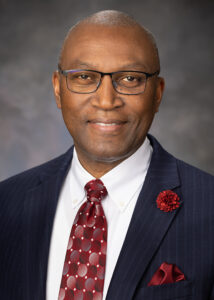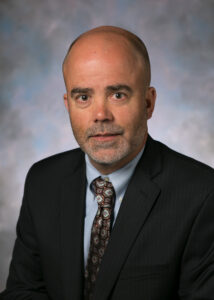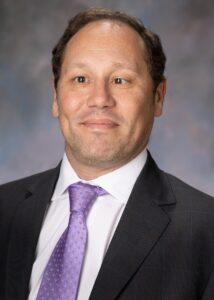Fetal Surgery for Spina Bifida: Supporting A Bright Future Closer to Home
Fetal Surgery for Spina Bifida: Supporting A Bright Future Closer to Home https://pediatricsnationwide.org/wp-content/themes/corpus/images/empty/thumbnail.jpg 150 150 Alaina Doklovic Alaina Doklovic https://pediatricsnationwide.org/wp-content/uploads/2023/11/100923RH0019-e1699635391623.jpg- September 19, 2023
- Alaina Doklovic
During her 20-week ultrasound appointment, Brittany Badenhop learned her baby had spina bifida, a term used to describe many disorders that occur during the development of the central nervous system. Spina bifida occurs very early on in a pregnancy as the embryo forms.
Brittany and her husband Jared learned that their baby’s spine was not growing correctly, leaving an opening in the baby’s back, exposing her spinal cord. After talking with their primary doctor, they decided to go to Nationwide Children’s Hospital for care. Initial tests showed that Brittany was the perfect candidate for fetal surgery, which would help restore the position of the baby’s brainstem and close the opening in the baby’s back.
“Fetal surgery for spina bifida is probably the best studied of all fetal interventions,” says Jeffrey Leonard, MD, chief of Neurosurgery at Nationwide Children’s. “Fetuses that get repaired before birth are twice as likely to walk without support and half as likely to need a shunt in the future.”
The surgery significantly reduces the risk of further injury during birth and allows the fetus to heal while still in the safety of the womb.
“In the past, women who needed fetal surgery had to go out of the area to get care,” says Oluyinka Olutoye, MD, PhD, fetal surgeon and Surgeon-in-Chief at Nationwide Children’s Hospital. “Now we can provide that service and care for them here at Nationwide Children’s.”
During the procedure, the fetal surgery team made a small opening in the uterus to access the baby and find the defect. Dr. Leonard then performed a three-layered closure to correct the spina bifida defect. The entire “dream team” that Nationwide Children’s had assembled was essential to the success of both mom and baby throughout the entire process.
Brittany and Baby's Team

Oluyinka Olutoye, MD, PhD

Jeffrey Leonard, MD

Adolfo Etchegarary, MD

Vanessa Olbrecht, MD

Anna Connair, WHNP-BC, CNP
Twelve weeks after the surgery, Brittany delivered her baby, Lexie, at 37 weeks – an extraordinary accomplishment for fetal surgery patients. All initial tests showed that Lexie’s brain and spinal cord were in place and healed. Lexie is already kicking her legs and moving on her own, giving the team hope that she will be able to walk without any support in the future.
“Lexie looks like a perfectly normal newborn with a scar on her back and she’s already moving her legs,” says Anna Connair, WHNP-BC, CNM, a nurse practitioner at the Fetal Center. “We’re all so hopeful that as neurosurgery, neurology and the spinal bifida team cares for her throughout her life span, that she’ll continue to exceed expectations.”
Image Credits: Nationwide Children’s
About the author
Alaina Doklovic is a Marketing Specialist for Research Communications at Nationwide Children’s Hospital. She received her BS in medical anthropology and English from The Ohio State University. Her passions for science and health, combined with her desire to help others, motivated her to pursue a career in which she could actively help improve patient outcomes and scientific research through writing.
-
Alaina Doklovichttps://pediatricsnationwide.org/author/alaina-doklovic/January 22, 2024
-
Alaina Doklovichttps://pediatricsnationwide.org/author/alaina-doklovic/February 12, 2024
-
Alaina Doklovichttps://pediatricsnationwide.org/author/alaina-doklovic/February 19, 2024
-
Alaina Doklovichttps://pediatricsnationwide.org/author/alaina-doklovic/March 19, 2024
- Posted In:
- Patient Story







